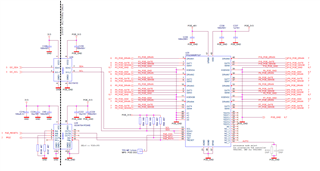Other Parts Discussed in Thread: ISOW7841, ISO7731, BOOST-PSEMTHR-007, , TPS23881
In our device, the values of some registers are periodically readed from the TPS23880 POE controller by Linux POE daemon. An unexpected register value is returned in a small number of read transactions. Based on test experiments, we found that the unexpected value is the content of the INTERRUPT Register (00h). For example - the POE daemon reads the TEMPERATURE Register (2Ch) but the read value is content of the INTERRUPT register (00h).


